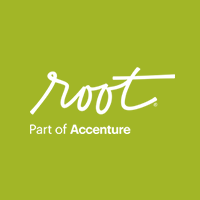One year into the pandemic, we’ve done the unthinkable. We’ve pivoted our businesses practically overnight. We’ve survived different and difficult work conditions, strained living conditions, and restrictions on our movements and interactions. For some of us, this year has been hard. For others, this year has been beyond hard. Resilience is no longer a “nice-to-have” capability.
Gone are the early days of the pandemic and the adrenaline-fueled innovation, resilience, and creativity that accompanied them, when so many organizations and their people fought hard to reinvent themselves and survive. What’s left for us to do in 2021 is to readjust and persevere, despite the unrelenting pace of change that is taking a toll on all of us.
How big is this toll? According to a recent study, people’s capacity for change is half of what it was one year ago (Gartner, October 2020). Despite the need to push forward, too many of us are running on empty at work. It’s a trend and a reality that HR and talent leaders can’t afford to ignore. Organizations need more from their people at the exact moment that people have less than ever to give.
Is there anything we can do to foster people’s resilience in the face of so much change?
We Need Empathy 2.0
Many HR and talent leaders see empathy as the answer – and they’re not wrong. At work, people crave empathy and understanding for their personal situations, which may include the need for flexibility as remote and in-person school and work realities continue to shift, having a significantly larger workload than they did before the pandemic, or lacking a true office space in their home where they can focus. People want to be seen, heard, and understood when it comes to these issues they’re facing. HR and talent leaders see that this is a critical time for leaders to listen and respond to what’s important to the people on their teams. Empathy is the winning theme of every conversation about leadership today – and yet it isn’t always enough.
Why? Empathy on a one-to-one level is important but doesn’t have enough reach. Great people leaders can listen, understand, and take action to solve challenges at the individual and team levels, but that is where their impact stops. HR and talent leaders need to consider not just empathy on a one-to-one level, but empathy on the one-to-many level. Empathy at scale means knowing and acting on what people need at the organizational level. We call this Empathy 2.0.
“I’ve been listening the wrong way my entire life,” said one director of a Fortune 50 company, following a recent leadership development journey we created with our clients, “and learning to listen differently changed my life.” This leader is tasked with setting the course for his team and leading them on that journey, which includes leading quite a bit of change. He now feels more equipped to do this because he’s able to listen on a deeper level to the person who is communicating – to their needs, their feelings, and the values they hold, and not just to the surface-level content being expressed.
A CHRO at another Fortune 50 company shared with us that she needed a way to ensure change initiatives were taking people’s needs into account in the wake of the pandemic instead of leaving it up to individual managers to do so. She created a new policy that gave people a stipend to support their work-from-home needs, to be used in whatever way felt most supportive. Some people needed standing desks. Some needed office chairs. Others needed printers. With this arrangement, individual managers weren’t having to advocate for individuals to get differing resources based on their own empathy, but rather the policy itself was empathetic.
Employees need resiliency to shoulder change right now, and organizational empathy – meeting people’s needs at the policy level and in the way we lead change – is a critical lever to empowering people with that resilience.
Three Shifts to Change the Way Your Organization Leads Change
To build resiliency and lift the fog of change fatigue that is our reality in 2021, we must think differently about how we lead change. Consider these three shifts.
- Emphasize change leadership, not change management. When change happens, our default position is to double-down on planning and the use of change management tools. While planning is instrumental to success, we cannot lose sight of the critical role that leadership plays in change. “Manage the change but lead the people” should be the mantra you tout in 2021.
- Put people first. If we want to help people move from change resistant to change resilient, we need to make sure they’re front and center as we think about any change. Too often our focus is on the intellectual side of change: what is changing or how that change will be implemented. Instead, we need to focus on the human side of change: why change is necessary and how people will be impacted. Change is both intellectual and emotional, and if we want it to be successful, we must tend to people’s heads and hearts.
- Create scale for the leadership side of change. With an emphasis on the leadership side of change and a commitment to putting people first, it’s important to embed change leadership capability across the business. You must have the mindset, skill set, and tools to lead change with both the head and the heart. Now is the time to think beyond individual capability to lead change and consider how you can build a coalition of change leaders in your organization.
Our capacity for change has taken a significant hit coming out of 2020, but HR and talent leaders are in a unique position to lead their organizations through Empathy 2.0 and will lead change differently as a result. Emphasizing the leadership side of change, putting people at the center of the way we lead change, and broadly investing in change leadership capability will ensure that people and their needs can be seen and heard. This kind of empathetic change leadership approach is essential for growing the resilience inside change that’s needed today.






